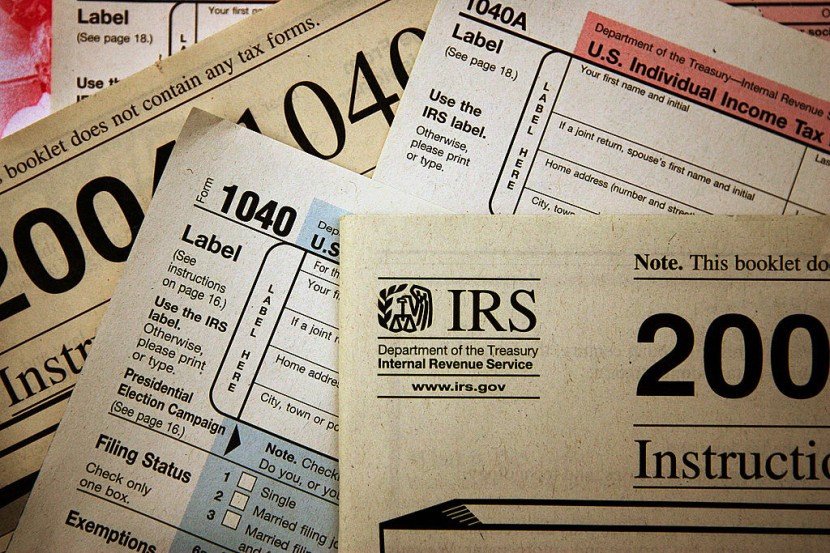
- Financial experts argue that it may be advantageous for some taxpayers to receive a tax refund
- When it comes to tax refunds, small overpayments are somewhat common
- Tax filings may not reflect well for Individuals anticipating larger refunds
According to the most recent IRS data, tax refunds are a source of happiness for millions of US households, and the average check is almost $3,000 this year. Refunds are frequently used to pay off debt, establish an emergency fund, or indulge in something expensive.
Refund checks may be pleasant to receive, but they do not represent free government money, according to CBS News.
Is it Good to Receive a Bigger Tax Refund?
Instead, they are refunds from the IRS for taxes that employees overpaid during the year, which totaled $360 billion in unpaid income last year, with two-thirds of taxpayers receiving a check from the IRS.
Due to the financial stakes, tax professionals and armchair behavior economists have engaged in a protracted debate - and even soul-searching - over whether it is more fiscally advantageous to receive a tax refund or to have as close to a "net zero" tax return as possible and receive nothing from the IRS.
The predominance of tax refunds has also stimulated economic research, with experts citing everything from "inertia" in adjusting tax withholding to a desire for a financial buffer due to income instability. On one side of the argument, several experts warn that tax refunds are interest-free loans made by taxpayers to the federal government.
On the other hand, other financial experts argue that it may be advantageous for some taxpayers to receive a refund since it effectively serves as an imposed savings plan, which can benefit those who have difficulty setting aside funds. While it may make financial sense to receive your money with each paycheck rather than in a refund check, this does not represent the reality of human behavior around money, according to some experts.
Instead of contributing to a 401(k) or savings account, receiving a larger income may be used to satisfy current needs and desires. Yet according to research by JPMorgan Chase, households that receive tax refunds typically have lower earnings than those who owe the IRS - roughly $50,000 versus $71,000.
This means that certain households that receive refunds may have less discretionary income and be subject to greater financial pressures, which might result in the extra cash being spent on immediate necessities rather than long-term aspirations. According to research by LendingTree in 2022, almost half of Americans expect to keep their tax return money.
But, it is often hard to predict whether you will receive a tax refund. For instance, the Earned Income Tax Credit and certain other federal tax credits, which may only be claimed annually on your tax return, can increase a taxpayer's tax refund, regardless of whether he or she withheld the proper amount of taxes during the year.
There is also a less tangible but powerful motivation to receive a tax return: the psychological impact of a refund check being deposited into your account. Meanwhile, unintentional overpayments of tax refunds may result from a variety of factors, including:
- Errors made by the IRS that are not your fault
- Improper tax deductions and credits claimed
- Recent alterations to tax laws
When it comes to tax returns, little overpayments are rather typical. Your accountant or tax software can only give you an estimate of your refund after you file your taxes. This amount may change following a closer examination by the IRS, which might result in a refund.
Nevertheless, if your tax return was much bigger than you anticipated, it is your job to determine what occurred, correct any mistakes you made, and settle the overpayment with the CRA.
Can the IRS Determine if You are Overpaid?
It may be tempting to retain the overpayment in the expectation that the CRA would overlook the issue. Although this is possible, you shouldn't rely on it. The CRA might discover the error at any moment, conduct a tax audit, and require you to return the amount.
If the CRA has cause to believe that the overpayment was the product of blatant fraud, you may be subject to extra penalties in addition to the repayment of the overpayment, according to CTV News. Penalties can include:
- Restitution of civil fees
- A fine equal to 200 percent of the amount of taxes evaded
- Maximum of five years in jail
You want to avoid being on the receiving end of these relatively severe fines imposed by the CRA to maintain honesty. When tax season begins, the IRS provides an early peek at tax filings, and the results thus far may need to be more encouraging for taxpayers anticipating larger refunds.
Since accepting tax returns for the 2022 tax year on January 23, the IRS has received about 19 million submissions and issued approximately eight million refunds. This year's average return check is $1,963, about 11% less than the same period last year, according to Fingerlakes1.
As predicted by tax professionals and the IRS, this downward refund trend is consistent with the expiry of certain tax credits and other benefits, like the expanded Child Tax Credit and government stimulus checks. As the filing season proceeds, the average tax refund tends to increase, so these early data may not necessarily reflect what filers anticipate as the April 18 filing deadline approaches.
Related Article : Will You Receive Extended Child Tax Credit This Year?
@YouTube
© 2026 HNGN, All rights reserved. Do not reproduce without permission.








